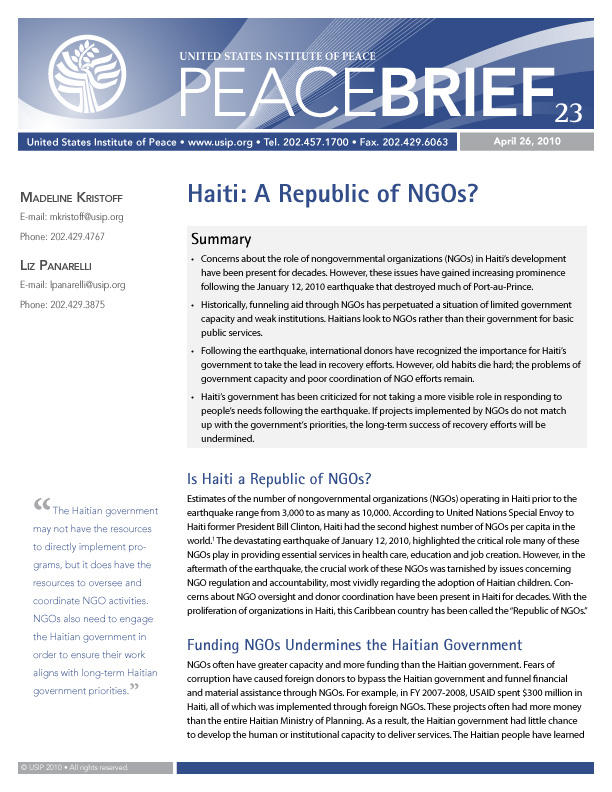Haiti: A Republic of NGOs?
Concerns about the role of nongovernmental organizations (NGOs) in Haiti’s development have been present for decades. However, these issues have gained increasing prominence following the January 12, 2010 earthquake that destroyed much of Port-au-Prince.

Summary
- Concerns about the role of nongovernmental organizations (NGOs) in Haiti’s development have been present for decades. However, these issues have gained increasing prominence following the January 12, 2010 earthquake that destroyed much of Port-au-Prince.
- Historically, funneling aid through NGOs has perpetuated a situation of limited government capacity and weak institutions. Haitians look to NGOs rather than their government for basic public services.
- Following the earthquake, international donors have recognized the importance for Haiti’s government to take the lead in recovery efforts. However, old habits die hard; the problems of government capacity and poor coordination of NGO efforts remain.
- Haiti’s government has been criticized for not taking a more visible role in responding to people’s needs following the earthquake. If projects implemented by NGOs do not match up with the government’s priorities, the long-term success of recovery efforts will be undermined.
About This Brief
This Peace Brief is based on a September 10, 2009 panel presentation and the views expressed on the roles of NGOs in Haiti during a meeting of the USIP Haiti Working Group. The panel consisted of John Chromy, vice president of CHF International, Rob Dressen, senior vice president of Development Alternatives Inc (DAI), Donna Barry, advocacy and policy director of Partners in Health, and François Pierre-Louis, associate professor at Queens College. Dr. Robert Maguire, associate professor at Trinity Washington University and chairman of USIP’s Haiti Working Group, served as moderator.


